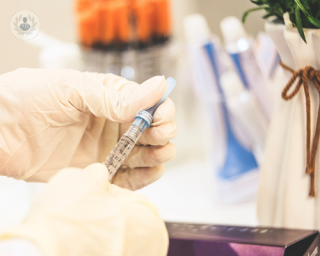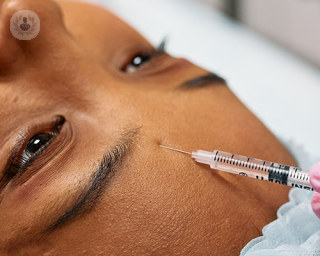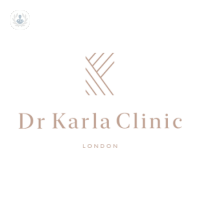Polynucleotides
Dr Karla Orsine Murta Dias - Aesthetic medicine
Created on: 09-26-2024
Updated on: 10-25-2024
Edited by: Karolyn Judge
Polynucleotides are naturally occurring molecules composed of long chains of nucleotides, which are the building blocks of DNA and RNA.
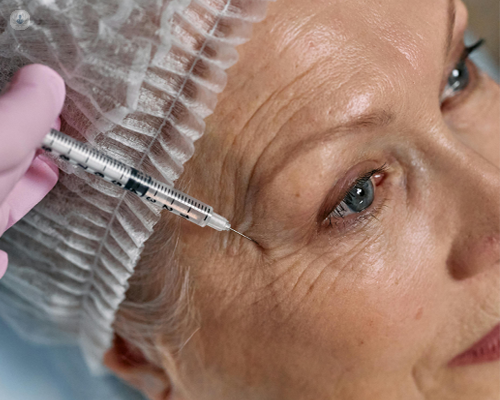
What do polynucleotides do?
Polynucleotides are naturally occurring molecules composed of long chains of nucleotides, which are the building blocks of DNA and RNA. In aesthetic medicine, polynucleotides are used in injectable treatments to promote tissue repair, hydration, and skin rejuvenation. They work by stimulating the skin's natural regenerative processes, improving elasticity and texture, and promoting the production of collagen, which is essential for maintaining youthful, firm skin.
Polynucleotides also have an anti-inflammatory effect, which makes them useful for treating damaged skin or skin that has been affected by environmental factors such as sun exposure. The treatment is designed to revitalise the skin at a cellular level, addressing the underlying causes of ageing and skin degradation rather than simply providing a superficial improvement.
How does this treatment work?
Polynucleotide injectable treatments work by delivering these bioactive molecules directly into the skin through a series of injections. Once administered, the polynucleotides penetrate the dermal layers, where they stimulate the production of new collagen fibres and elastin. These components are crucial for maintaining skin structure, firmness and elasticity.
Additionally, polynucleotides help to increase moisture retention in the skin by encouraging the production of hyaluronic acid, a natural substance that retains water and keeps the skin hydrated. This makes the treatment particularly effective for individuals with dry or ageing skin.
The treatment also enhances cell turnover, which helps to repair damaged tissues and promotes a more even skin tone. Because polynucleotides are biocompatible with the human body, the treatment carries a lower risk of adverse reactions, as the body recognises the molecules as natural.
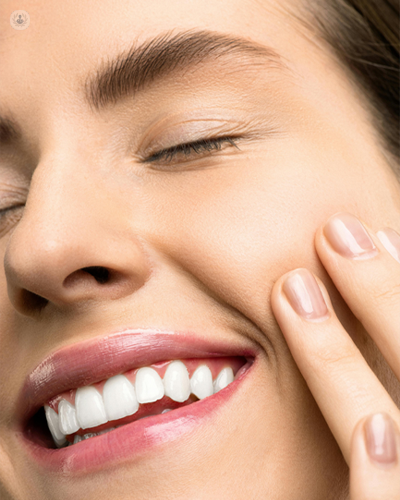
What are the benefits of polynucleotides injectable treatment?
Polynucleotide injectable treatments offer a range of benefits, particularly for individuals looking to improve the overall health and appearance of their skin. One of the primary benefits is the ability to stimulate collagen production, which helps to reduce fine lines, wrinkles, and sagging. Over time, this leads to firmer, smoother skin with a more youthful appearance.
Another key benefit is increased hydration. By promoting the synthesis of hyaluronic acid, polynucleotides help the skin retain moisture, making it appear plumper and more radiant. This is especially beneficial for individuals with dry or mature skin that has lost its natural moisture over time.
The anti-inflammatory properties of polynucleotides can also help to reduce redness, irritation, and other signs of skin damage. This makes the treatment suitable for individuals with sensitive or sun-damaged skin, as it helps to repair and restore the skin’s natural barrier.
Unlike some other treatments, polynucleotide injectables work on a deeper level, targeting the underlying causes of skin ageing and degradation rather than simply masking the symptoms. This makes it a comprehensive and long-lasting solution for improving skin health and appearance.
Are polynucleotides better than Botox™?
Polynucleotides and Botox™ are both popular injectable treatments used in aesthetic medicine, but they work in very different ways and are designed to achieve different results. Botox™, or botulinum toxin, works by temporarily paralysing the muscles that cause dynamic wrinkles, such as frown lines and crow’s feet. It’s highly effective at smoothing out wrinkles caused by facial expressions, and its effects typically last for three to six months.
Polynucleotides, on the other hand, focus on improving skin quality at a cellular level. Instead of relaxing muscles, they stimulate collagen production, increase hydration, and promote skin repair. The results of polynucleotide treatment are more gradual but can lead to long-term improvements in skin texture, firmness and hydration.
Therefore, the choice between polynucleotides and Botox™ depends on the patient's aesthetic goals. If the primary concern is dynamic wrinkles caused by muscle movement, Botox™ may be the better option. However, for individuals looking to improve overall skin health, address signs of ageing such as loss of firmness, and enhance skin hydration, polynucleotides offer a more comprehensive solution.
In some cases, these treatments can be combined for a more complete rejuvenation strategy, where Botox™ addresses muscle-related wrinkles, and polynucleotides improve skin quality.
What are the disadvantages of Polynucleotides?
While polynucleotide treatments offer many benefits, there are some potential disadvantages to consider. First, the results of polynucleotide injections are not immediate. Patients typically need multiple sessions over several months to achieve the desired outcomes, as the treatment works by gradually stimulating the body’s natural regenerative processes. This means that it may not be suitable for individuals looking for quick or dramatic results.
Another consideration is the cost of the treatment. Because polynucleotide injections require specialised bioactive materials and multiple treatment sessions, they can be more expensive compared to other aesthetic procedures such as Botox or dermal fillers.
Finally, as with any injectable treatment, there is a small risk of side effects, such as bruising, swelling, or redness at the injection site. These side effects are usually mild, however, and will resolve by themselves within a few days.
Are polynucleotides safe?
Polynucleotide injectable treatments are generally considered safe, particularly when performed by a qualified medical professional. Polynucleotides are biocompatible, meaning that they are recognised by the body as natural substances, which reduces the risk of allergic reactions or other adverse effects.
However, as with any medical treatment, it is important for patients to disclose their full medical history and any allergies or sensitivities to their doctor before undergoing polynucleotide injections. This ensures that the treatment is suitable for them and reduces the likelihood of complications.
It is also crucial to choose a reputable clinic or practitioner, as the quality of the polynucleotides and the technique used can influence both the safety and effectiveness of the treatment.

Which specialists undertake Polynucleotides injectable treatments?
Polynucleotide injectable treatments are typically offered by aesthetic doctors, dermatologists and cosmetic surgeons who specialise in non-surgical facial rejuvenation. These specialists have the necessary training and expertise to safely administer the treatment and achieve optimal results.
In the UK, aesthetic doctors and dermatologists are commonly sought after for this procedure, as they have an in-depth understanding of the skin and the mechanisms behind cellular regeneration. It is important for patients to choose a practitioner who is experienced in administering polynucleotide treatments and who uses high-quality products that have been approved for use in aesthetic medicine.
In conclusion, polynucleotide injectable treatments offer a promising and comprehensive approach to skin rejuvenation. By addressing the underlying causes of skin ageing, such as reduced collagen production and dehydration, Polynucleotide treatment provide long-lasting improvements in skin quality. While the results are not immediate, the gradual regeneration of the skin can lead to firmer, smoother, and more radiant skin over time.

